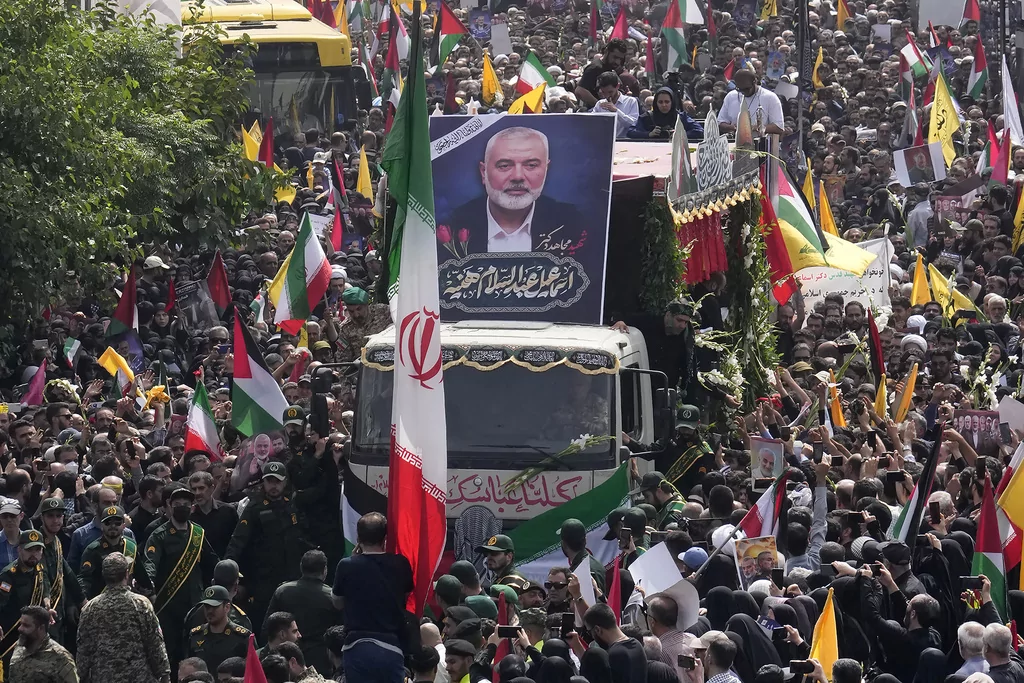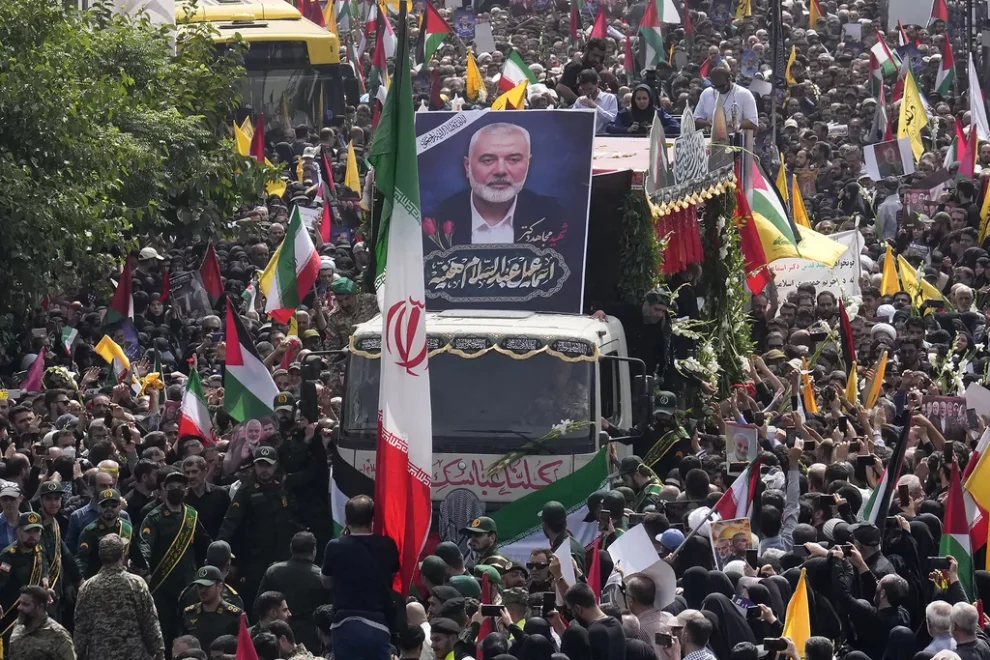The leaders of the United States, Qatar, and Egypt, the three countries that have acted as mediators for ongoing negotiations between Israel and Hamas, have urged both sides to return to the negotiating table.
President Joe Biden, Egyptian President Abdel Fattah el Sisi, and Qatari Amir Sheikh Tamim bin Hamad Al Thani released a joint statement on Thursday evening calling on both parties “to conclude the ceasefire and hostages and detainees release deal.”
“The three of us and our teams have worked tirelessly over many months to forge a framework agreement that is now on the table with only the details of implementation left to conclude,” the leaders added. “There is no further time to waste nor excuses from any party for further delay. It is time to release the hostages, begin the ceasefire, and implement this agreement.”
The leaders announced that they expect all parties to meet next Thursday in either Doha or Cairo and that they “are prepared to present a final bridging proposal that resolves the remaining implementation issues in a manner that meets the expectations of all parties.”
While the leaders emphasized the importance of getting a deal done, a senior U.S. official noted that they do not expect an agreement to come out of Thursday’s meeting.
“We’re not anticipating the deal being ready to close on Thursday,” the official said. “There’s still some, a lot of work here to be done. But we think getting this moving later next week will be unhelpful and constructive.”
“It’s not like on Thursday, we’re gonna sit in a room and sign the deal,” the official added. “There’s work to be done. And both sides have positions on about four or five issues. And I say both sides have very firm positions. And if you just look at them, they might be unbridgeable. But you treat each issue one by one.”
The U.S., Egypt, and Qatari negotiators have desperately sought for several months to get this deal over the finish line but with little to show for it this year. Israel and Hamas agreed to a weeklong ceasefire deal in late November, during which about a hundred Israeli hostages were released. No deal has been agreed upon since then.
It’s not clear who will lead Hamas’s negotiations following the assassination of Ismail Haniyeh, the former head of Hamas’s political bureau and the lead negotiator. Haniyeh was killed last week while visiting Tehran for the Iranian president’s inauguration.

Hamas’s top leader in Gaza is Yahya Sinwar, and he was just chosen to replace Haniyeh. Sinwar is believed to be hiding in Hamas’s extensive tunnel system underneath Gaza, continuing to evade Israeli forces hunting him.
“With regard to Mr. Sinwar, he has been and remains the primary decider when it comes to concluding the ceasefire,” Secretary of State Antony Blinken said this week. “It is really on him to decide whether to move forward with a ceasefire … and that, besides changing everything for people in Gaza — bringing the hostages home, giving us an opportunity to build a more enduring peace for Gaza — also opens up other possibilities, other prospects, more broadly, in terms of de-escalating tensions and bringing real security and stability.”
Looming over this meeting is Iran’s expected retaliatory attack against Israel for Haniyeh’s assassination, even though Israel has not publicly taken credit for it. It’s unclear when Iran could attack Israel, or what such an assault will look like.
Iran has a number of proxy forces it supports in the Middle East, including Hamas, some of which could also be involved in their response. While Hamas has been severely weakened during the war that has devastated Gaza, Hezbollah in Lebanon continues to attack Israel’s northern community.
While Israeli forces have operated within Gaza, Israel and Hezbollah, which is based in Lebanon, have continuously attacked each other in rocket and missile fires over their shared border. These attacks have gone on since right after Hamas’s Oct. 7 attack. Tens of thousands of civilians have been and remain evacuated from their homes due to the fires.
Hezbollah’s arsenal is much more sophisticated than Hamas’s, and they have the ability to hit targets anywhere within Israel with precision-guided missiles if they choose to escalate the current conflict.
CLICK HERE TO READ MORE FROM THE WASHINGTON EXAMINER
Iran also supports the Houthis in Yemen, which have fired about 200 drones and missiles toward Israel since the war began, according to the Israeli military. A Houthi drone recently evaded Israeli air defenses and killed one civilian in Tel Aviv. They have primarily, since Oct. 7, targeted commercial vessels in the Red Sea forcing global shipping companies to reroute their vessels to avoid the Red Sea and Gulf of Aden.
There are also militias in Iraq and Syria that Iran supports. They have primarily fired missiles, drones, and rockets toward U.S. bases in the region in time time since Oct. 7. Earlier this week, they fired three rockets at Al Asad Air Base in Iraq, two of which hit it. Five U.S. personnel were injured in the attack, three of whom had to be evacuated to Landstuhl Regional Medical Center in Germany. Two others, not included in the five, had “very minor injuries and returned to duty right away,” the deputy Pentagon press secretary said on Thursday.
























